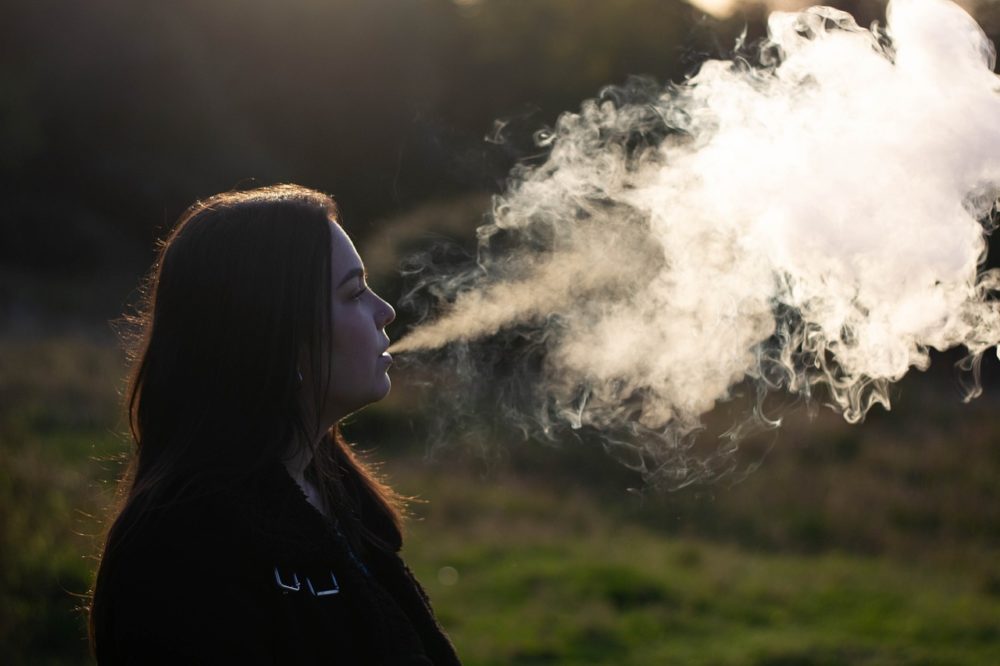Banning disposable vapes could have unintended consequences for smokers – study

Banning disposable vapes would protect children, but adults may need to be persuaded to switch to other e-cigarettes to prevent them going back to smoking, research suggests.
A study funded by Cancer Research UK found a ban on disposable vapes – currently being considered by the Government – would affect an estimated 2.6 million adults in England, Wales and Scotland.
Researchers said preventing the uptake of vaping among those who have never smoked – particularly children – is “a public health priority”.
They explained: “Unlike earlier disposables, these new disposable products are not designed to look like cigarettes but rather have a sleek design (in a variety of colours) and branding that appeals to young people.
“They are promoted through colourful in-store displays, word of mouth, and social media platforms, and are widely available in supermarkets, convenience stores, petrol stations, vape shops, and online without adequate enforcement of age-of-sale laws.”
The study found that, from January 2021 to August 2023, the prevalence of disposable e-cigarette use grew from 0.1% to 4.9% of the adult population.
Younger adults
This rise was most pronounced among younger adults (reaching 15.9% of 18-year-olds compared with 1.3% of 65-year-olds), those who currently smoke (16.3%), and those who stopped smoking in the past year (18.2%).
Never-smokers were unlikely to vape, thought this was not the case with younger people. Some 7.1% of 18 to 24-year-old people who had never smoked did vape.
Overall, the study concluded that a ban on disposable e-cigarettes would currently affect one in 20 adults (around 2.6 million people).
Researchers said: “The proportion who would be affected would be greatest among young people, including the 316,000 18 to 24-year-olds who currently use disposables but who have never regularly smoked tobacco, which may discourage uptake of vaping in this group.
“However, a ban would also affect 1.2 million people who currently smoke and a further 744,000 who previously smoked.
“It would also have a disproportionate impact on disadvantaged groups that have higher rates of smoking and typically find it harder to quit.”
Lead author Dr Sarah Jackson, from University College London (UCL), said: “While banning disposables might seem like a straightforward solution to reduce youth vaping, it could have substantial unintended consequences for people who smoke.
“In the event of a ban, it would be important to encourage current and ex-smokers who use disposables to switch to other types of e-cigarettes rather than going back to just smoking tobacco.”
Dr Ian Walker, executive director of policy at Cancer Research UK, said: “Smoking is the biggest preventable cause of cancer, and research shows that vapes are far less harmful than smoking and can help people to quit. But the long-term health impacts of vaping are unknown.
“This study highlights the complex balancing act of disposable vape regulation and who might be most affected.
“Vapes must be regulated so they don’t fall into the hands of children and people who’ve never smoked but also made available to people who want to quit smoking.
“It’s important that, through clamping down on youth vaping, we don’t also create barriers for those trying to quit smoking.”
Senior author Professor Jamie Brown, also from UCL, said: “There is a need for action to reduce disposable vaping among young people who have never smoked. However, trade-offs need to be carefully considered.
“A ban may discourage use of e-cigarettes among people trying to quit smoking and may induce relapse among those who have already used disposables to quit.
“Cigarettes are far more harmful to our health and are not currently banned and a ban on disposable e-cigarettes may signal to large numbers of people that these products are worse for our health or that their harm is comparable to that caused by smoking tobacco.”
Prof Brown said he favoured a range of alternative policies “with rapid evaluation to judge whether these are sufficient to achieve reductions in youth vaping.”
Strengthening regulations
The researchers suggested strengthening regulations around disposable vapes.
This includes banning branding that appeals to children (such as bright colours, sweet names, and cartoon characters), preventing the promotion of e-cigarettes in shops, putting e-cigarettes out of sight and reach of children, and putting a tax on disposables to raise the price to the same level as the cheapest reusable e-cigarettes.
A minimum unit price to reduce their affordability could also be implemented quickly.
The study, published in the journal Public Health, included survey responses from 69,973 adults.
Support our Nation today
For the price of a cup of coffee a month you can help us create an independent, not-for-profit, national news service for the people of Wales, by the people of Wales.






Sorry but I just don’t see the point of allowing the menace of disposable vapes just because some people want to protect smokers: The least productive workers (trust me, I know, I am an ex-smoker, I rinsed every fag break), one of the biggest drains on the NHS and some of the most entitled people you will ever come across (I’ve never met a smackhead who thought it was unfair that they couldn’t shoot up in a public space, never met a crackhead that insisted its fine for me to inhale their secondary smoke because they felt the need for… Read more »
Just ban the lot. The waste from vapes alone and they Gove a path for kids into cigarettes, tobacco lobbies know the game here. Just do it and snub the lobby.
Ban cigarettes as well.